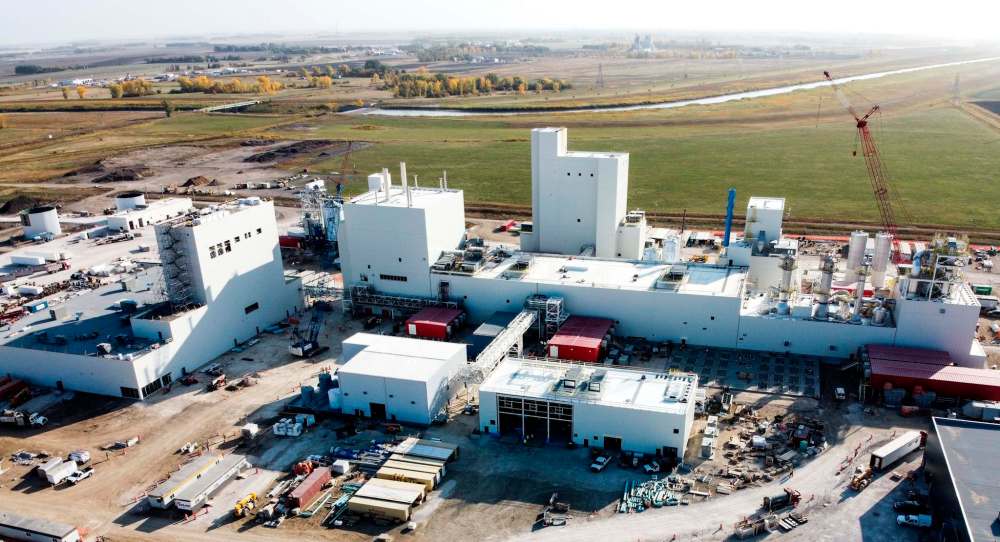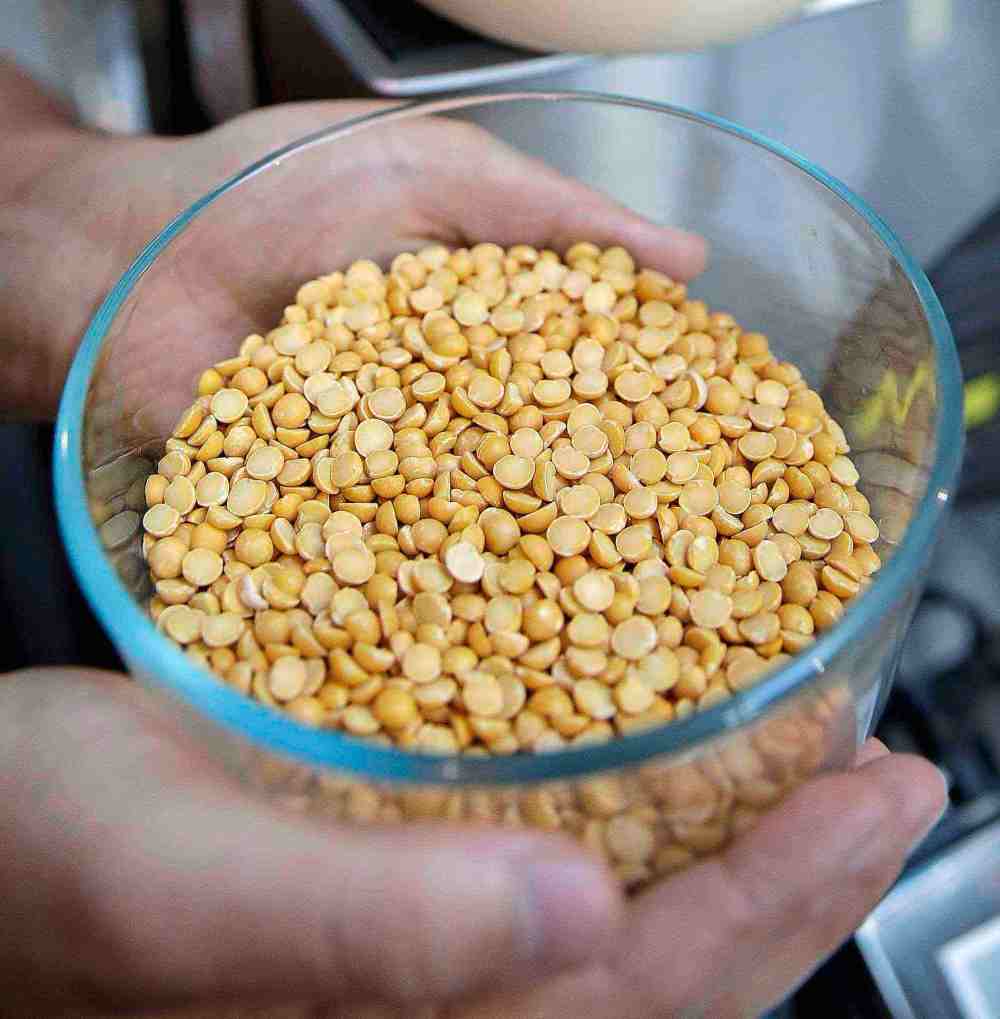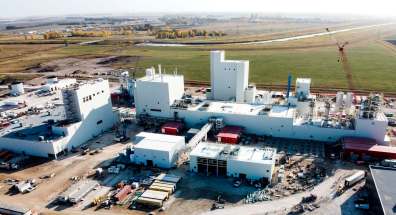Peas, please World's largest pea protein processor has a pulse, expected to start production by year's end
Read this article for free:
or
Already have an account? Log in here »
To continue reading, please subscribe:
Monthly Digital Subscription
$0 for the first 4 weeks*
- Enjoy unlimited reading on winnipegfreepress.com
- Read the E-Edition, our digital replica newspaper
- Access News Break, our award-winning app
- Play interactive puzzles
*No charge for 4 weeks then price increases to the regular rate of $19.00 plus GST every four weeks. Offer available to new and qualified returning subscribers only. Cancel any time.
Monthly Digital Subscription
$4.75/week*
- Enjoy unlimited reading on winnipegfreepress.com
- Read the E-Edition, our digital replica newspaper
- Access News Break, our award-winning app
- Play interactive puzzles
*Billed as $19 plus GST every four weeks. Cancel any time.
To continue reading, please subscribe:
Add Free Press access to your Brandon Sun subscription for only an additional
$1 for the first 4 weeks*
*Your next subscription payment will increase by $1.00 and you will be charged $16.99 plus GST for four weeks. After four weeks, your payment will increase to $23.99 plus GST every four weeks.
Read unlimited articles for free today:
or
Already have an account? Log in here »
Hey there, time traveller!
This article was published 28/10/2020 (1873 days ago), so information in it may no longer be current.
Roquette will be receiving its first shipments of peas to its Portage la Prairie pea protein plant in the next few weeks — with production on track to begin by the end of the year — and the company has announced it will expand its producer contracting to include organic growers.
The $600-million plant – 50 per cent more than the company had originally said it would cost – is the largest pea protein plant in the world and despite the fact that most markets have been turned upside down by the COVID pandemic, officials from the French company remain bullish on market prospects.

Glen Last, Roquette’s grain buyer, said early response to the company’s first round of Prairie grower contracts has been strong.
“The feedback we’ve received from growers who signed with us is that they are eager to re-sign for 2021 and beyond,” said Last. “Our goal is to build strong, long-term relationships with growers who contract with us.”
Company officials said there would be incentives for organic growers but would not provide any details.
Roquette is likely going to have to look to Saskatchewan, at least for now, for its organic peas because Manitoba producers grow very little of it.
“Our goal is to build strong, long-term relationships with growers who contract with us.”
– Glen Last, Roquette grain buyer
Daryl Domitruk, executive director of the Manitoba Pulse and Soybean Growers Association, said, “Not many Manitoba growers have been attracted to organics. Roquette will have to go further afield than Manitoba to secure their needs in the short term anyway. We’ll see how growers respond to the opportunity.”
But having said that, Roquette officials are confident they will find the supply they need.
The company has said the plant will process about 125,000 metric tonnes of yellow peas per year at the start. Considering that Manitoba and Saskatchewan and Alberta produce more than four million tonnes, there is plenty of supply.

“We will be a sustainable market. We are not in and out. We will be here all the time and our pricing will be at a sustainable level to make it work for the grower and us,” said Last.
There are about 4,000 Manitoba farmers growing yellow peas on about 148,000 acres. Saskatchewan has about two million acres of yellow peas. Domitruk said the rule of thumb is that one acre can produce about one tonne of peas.
Dominique Baumann, CEO for Roquette in Canada, said the company is proud of the measures it put in place to keep its workers safe, including installing one of the first private COVID testing sites in the province in September.
There are still about 850 workers on site putting the finishing touches on the construction. When it starts production, there will be about 120 people running the plant.
“Not many Manitoba growers have been attracted to organics. Roquette will have to go further afield than Manitoba to secure their needs in the short term anyway. We’ll see how growers respond to the opportunity.”
– Daryl Domitruk, executive director of the Manitoba Pulse and Soybean Growers Association
He said he believes the demand for plant-based protein will also be sustainable.
Roquette, which operates dozens of manufacturing plants around the world making all sorts of ingredients for the food and pharmaceutical industries, has made its Portage pea protein plants one of its priorities.
“Plant-based protein is one of our key sectors and the demand trend has not slowed down,” Baumann said. “It is still very strong despite COVID.”
At the beginning of the year Roquette signed a long-term supply agreement with Beyond Meat, which it had been supplying from its smaller pea protein plant in France. It will significantly increase the volumes that Roquette ships to Beyond Meat whose products are available in close to 60,000 locations in more than 50 countries.
Julianne Curran, vice-president of market innovation at Pulse Canada, said the entrance of Roquette and Merit Functional Foods, another pea and canola processing operation under construction in Winnipeg, will definitely be good news for growers.
“We have been waiting for this new processing capacity to come on line. Every 100,000 tonnes counts. It all adds up to something meaningful,” she said. “There is a lot of potential opportunities for these ingredients and the more supply we have available the more we will see being used.”
martin.cash@freepress.mb.ca

Martin Cash has been writing a column and business news at the Free Press since 1989. Over those years he’s written through a number of business cycles and the rise and fall (and rise) in fortunes of many local businesses.
Our newsroom depends on a growing audience of readers to power our journalism. If you are not a paid reader, please consider becoming a subscriber.
Our newsroom depends on its audience of readers to power our journalism. Thank you for your support.
History
Updated on Thursday, October 29, 2020 1:38 PM CDT: Clarifies there will be about 120 people running the plant.








